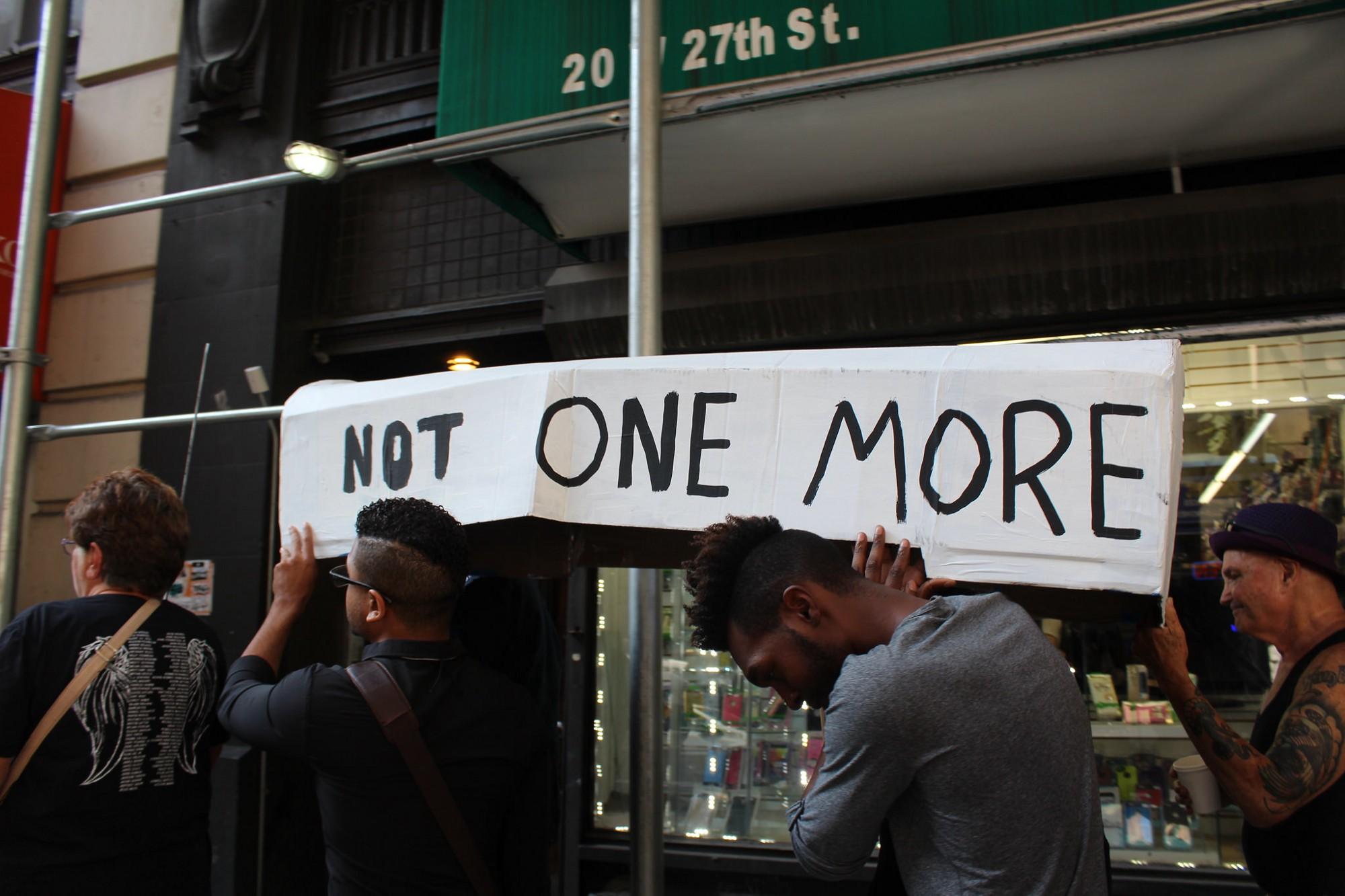Activists Fed Up with New York Mayor Bill de Blasio’s Silence on Safe Injection Sites
Local activists are set to gather at New York’s City Hall today, urging Mayor Bill de Blasio to end his silence on the idea of the city opening a supervised injection facility, a medical setting for safely injecting drugs. Organized by VOCAL-NY, a nonprofit grassroots organization, the coalition of activists and drug users are calling out […]

Local activists are set to gather at New York’s City Hall today, urging Mayor Bill de Blasio to end his silence on the idea of the city opening a supervised injection facility, a medical setting for safely injecting drugs. Organized by VOCAL-NY, a nonprofit grassroots organization, the coalition of activists and drug users are calling out what they view as the city’s “war on drugs” approach to a worsening overdose crisis that currently kills one city resident every seven hours.
“We want to call attention to the mayor’s inaction and silence on safe consumption spaces,” Jeremy Saunders, co-director of VOCAL-NY, told The Appeal. “The silence has been deafening.” Saunders noted that cities like San Francisco and Philadelphia are in the process of implementing supervised injection facilities, and that it’s time New York does the same.
In 2016, the city allocated $100,000 to study the feasibility of opening such a facility in New York. The results, however, have yet to be released. On Saturday, The New York Times’s editorial board gave a full-throated endorsement of supervised injection sites.
These facilities have been scientifically proven to prevent overdose deaths. Dozens of empirical evaluations of over 100 facilities across 10 European countries and Canada show that these spaces reduce overdoses and public nuisance in city hotspots, while linking hard-to-reach populations with social services and addiction treatment. As evidence has mounted, so has political support for the facilities. But New York’s progressive mayor has yet to take a stand on the issue.
“I’m baffled why the mayor hasn’t come out in favor of this,” Saunders said.
Mayor de Blasio recently earned praise for increasing spending on the overdose crisis to $38 million per year under the Healing NYC program. That praise quickly turned to criticism, however, when reporters learned that half the funding was slated for hiring 84 detectives assigned to Heroin Overdose Teams, tasked with investigating overdoses and tracking dealers. Health and addiction experts say far too much of the program’s funding is dedicated to law enforcement rather than public health interventions.
De Blasio defended his plan in an interview last fall. “I think it’s been very clear in the approach the NYPD has taken that they’re not after the individual who tragically is addicted,” the mayor said. “They’re after the person selling the drugs in large quantities.”
Activists at VOCAL-NY say that’s simply not true. They say cops stalk methadone clinics looking for easy collars and flipping potential informants.
Driving away from a Brooklyn methadone clinic after receiving that day’s dose of medication treatment, New Yorkers Alfredo Padilla and Tara Fedele said they were pulled over by Brooklyn South narcotics officers — the same unit in which two detectives were charged last fall with raping a woman in custody.
The couple told The Appeal that they told the officers they are engaged in treatment and are peer-volunteers at VOCAL-NY, where they distribute clean syringes. The couple said that the officers searched their car without their consent and found a loose anti-anxiety pill without a prescription along with urine in a bottle, which officers contend was methadone. The couple was arrested and booked after the stop. The NYPD confirmed that they were arrested and charged with possession of a controlled substance, but would not comment further on the case.
“Look,” Fedele said. “If people are out there selling pills, selling drugs, by all means, do your job. But don’t arrest people trying to get their medication.”
Padilla, who said he had clean urine in the car’s glove compartment because he was still in the process of quitting heroin, said the officer offered to pay him $200 for every drug dealer he turns in to the police, a claim the NYPD would neither confirm nor deny. Offering cash to the addicted in exchange for information is a well-known tactic used by the NYPD. “I told him I’m happy with my job,” Padilla told The Appeal. “I make $15 an hour passing out syringes, keeping people from getting HIV and hep C.”
Fedele said she was offended by the officer’s offer: “I got off drugs so I don’t have to look over my shoulder and get killed buying drugs on the street for cops.”
Stories like these leave VOCAL-NY’s Saunders fuming. “At the end of the day, the mayor is ceding the NYPD control of this fight above his own Department of Health commissioner, who clearly would not condone this type of behavior,” he said. For drug users trying to stay alive or recover, he added, it’s an example how the “gentler” war on drugs appears not to apply to them.
“The NYPD criminalization approach is exacerbating our problems,” Saunders said.
